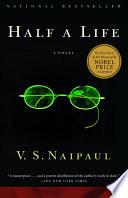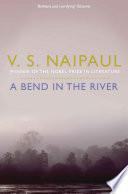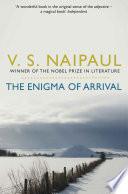Works
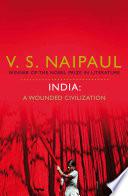
India: A Wounded Civilization
V.S. Naipaul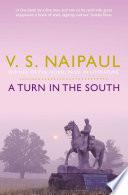
A Turn in the South
V.S. Naipaul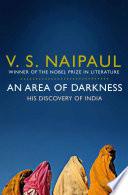
An Area of Darkness
V.S. Naipaul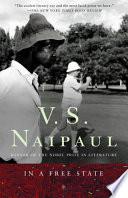
In a Free State
V.S. Naipaul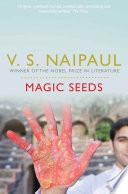
Magic Seeds
V.S. NaipaulFamous V.S. Naipaul Quotes
“If a writer doesn’t generate hostility, he is dead.”
As quoted from , "VS Naipaul: A controversial author who crafted his lines and insults", Indian Express (12 August 2018) https://indianexpress.com/article/lifestyle/books/vs-naipaul-a-controversial-author-who-crafted-his-lines-and-insults/
“His ignorance seemed to widen with everything he read.”
Source: Half a Life
“After all, we make ourselves according to the ideas we have of our possibilities.”
Source: A Bend in the River
V.S. Naipaul Quotes about people
Prologue
Beyond Belief: Islamic Excursions Among the Converted Peoples (1998)
Source: A Turn in the South (1989), Ch. 6, p. 244
As quoted in "V.S. Naipaul in Search of Himself: A Conversation" with Mel Gussow, The New York Times, (24 April 1994) http://www.nytimes.com/books/98/06/07/specials/naipaul-conversation.html?_r=1&oref=slogin
As quoted in VS Naipaul launches attack on Islam" in The Guardian (4 October 2001) https://web.archive.org/web/20170412063202/https://www.theguardian.com/world/2001/oct/04/afghanistan.terrorism9
“Everybody is interesting for an hour, but few people can last more than two.”
As quoted in "Wanderer of Endless Curiosity" by R. Z. Sheppard in Time magazine (10 July 1989) http://www.time.com/time/printout/0,8816,958134,00.html
V.S. Naipaul Quotes about the world
"The Journey", p. 115
The Enigma of Arrival (1987)
V.S. Naipaul, Interview, with URMI GOSWAMI, JANUARY 14, 2003 0 'How do you ignore history?' https://web.archive.org/web/20070106194746/http://economictimes.indiatimes.com/cms.dll/html/comp/articleshow?artid=34295982
"India After Indira Gandhi" in The Daily Mail, and The New York Times (3 November 1984) https://www.nytimes.com/1984/11/03/opinion/india-after-indira-gandhi.html
Context: India has been very lucky in the Nehru family. Nehru was unique in recent world history: a colonial protest figure, a folk hero who did not appeal to fanaticism but was a reasonable, reasoning man. A man committed to science, religious tolerance, the rule of law and the rights of man. Indira Gandhi, his daughter, carried on this way of looking at things. In Britain, she might have had the reputation of being domineering, harsh, even ruthless. And you can easily make a case for her being authoritarian, antidemocratic, stamping out protest. But it isn't enough just to do that. One must consider what was on the other side. In 1975, some opposition parties wanted India to go back to some pre-industrial time of village life. Piety can take odd forms.
V.S. Naipaul Quotes
“The only lies for which we are truly punished are those we tell ourselves.”
Source: In a Free State (1971)
“Men need history; it helps them to have an idea of who they are.”
"The Ceremony of Farewell"
The Enigma of Arrival (1987)
Context: Men need history; it helps them to have an idea of who they are. But history, like sanctity, can reside in the heart; it is enough that there is something there.
"Our Universal Civilization" in The New York Times (5 November 1990) https://www.nytimes.com/1990/11/05/opinion/our-universal-civilization.html
Context: The universal civilization has been a long time in the making. It wasn't always universal; it wasn't always as attractive as it is today. The expansion of Europe gave it for at least three centuries a racial taint, which still causes pain. … This idea of the pursuit of happiness is at the heart of the attractiveness of the civilization to so many outside it or on its periphery. I find it marvelous to contemplate to what an extent, after two centuries, and after the terrible history of the earlier part of this century, the idea has come to a kind of fruition. It is an elastic idea; it fits all men. It implies a certain kind of society, a certain kind of awakened spirit. I don't imagine my father's Hindu parents would have been able to understand the idea. So much is contained in it: the idea of the individual, responsibility, choice, the life of the intellect, the idea of vocation and perfectibility and achievement. It is an immense human idea. It cannot be reduced to a fixed system. It cannot generate fanaticism. But it is known to exist, and because of that, other more rigid systems in the end blow away.
“That element of surprise is what I look for when I am writing.”
"Two Worlds," Nobel lecture (7 December 2001) http://nobelprize.org/nobel_prizes/literature/laureates/2001/naipaul-lecture-e.html
Context: I have told people who ask for lectures that I have no lecture to give. And that is true. It might seem strange that a man who has dealt in words and emotions and ideas for nearly fifty years shouldn't have a few to spare, so to speak. But everything of value about me is in my books. Whatever extra there is in me at any given moment isn't fully formed. I am hardly aware of it; it awaits the next book. It will — with luck — come to me during the actual writing, and it will take me by surprise. That element of surprise is what I look for when I am writing.
"Our Universal Civilization" in The New York Times (5 November 1990) https://www.nytimes.com/1990/11/05/opinion/our-universal-civilization.html
Context: The universal civilization has been a long time in the making. It wasn't always universal; it wasn't always as attractive as it is today. The expansion of Europe gave it for at least three centuries a racial taint, which still causes pain. … This idea of the pursuit of happiness is at the heart of the attractiveness of the civilization to so many outside it or on its periphery. I find it marvelous to contemplate to what an extent, after two centuries, and after the terrible history of the earlier part of this century, the idea has come to a kind of fruition. It is an elastic idea; it fits all men. It implies a certain kind of society, a certain kind of awakened spirit. I don't imagine my father's Hindu parents would have been able to understand the idea. So much is contained in it: the idea of the individual, responsibility, choice, the life of the intellect, the idea of vocation and perfectibility and achievement. It is an immense human idea. It cannot be reduced to a fixed system. It cannot generate fanaticism. But it is known to exist, and because of that, other more rigid systems in the end blow away.
“Non-fiction can distort; facts can be realigned. But fiction never lies.”
Source: A Bend in the River
Among the Believers
The Enigma of Arrival (1987)
“Before comfort had been squeezed out of the hard land, like blood out of stone.”
Half a Life (2001)
An Area of Darkness (1964)
As quoted in "V.S. Naipaul in Search of Himself: A Conversation" with Mel Gussow, The New York Times, (24 April 1994)
India: A Wounded Civilization (1977)
Source: A Turn in the South (1989), Ch. 5, p. 162
“A writer is in the end not his books, but his myth. And that myth is in the keeping of others.”
"Steinbeck in Monterey" (1970), in Daily Telegraph Magazine (3 April 1970), later published in The Overcrowded Barracoon, and other articles (1972)
“I could scarcely bear to look at her eyes. They promised such intimacies.”
Half a Life (2001)
“One always writes comedy at the moment of deepest hysteria.”
As quoted in "V.S. Naipaul in Search of Himself: A Conversation" with Mel Gussow, The New York Times, (24 April 1994)
India: A Wounded Civilization (1977)

